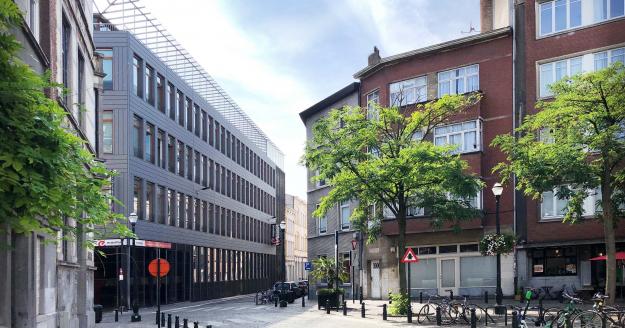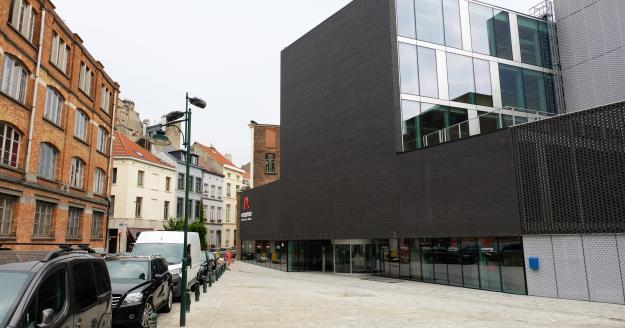
Early Childhood Education
Professional Development Strategies and Methods
This course is designed to equip individuals with Strategies and Methods necessary for professional development of both individuals and teams. The continuous evolving nature of the professional landscape demands an innovative approach to growth and professional development, and this course aims to provide students with strategies and methods to navigate and support this successfully.
3
Urban Pedagogy
- Characteristics of the urban city (ex. demografic aspects) with Brussels as case study
- The historical, economic, social and cultural development of Brussels
- The concept of Pedagogical Challenges
- Different cases out of the media, analysed through the perspective of Brussels (as urban context)
4
Educare International
More information coming soon!
3
100 Languages of Children
Exploring the 100 languages is a concept in which children are experienced as powerful and full of potential.
In the course of the 100 languages, the future ECPs are invited to explore the child within and search for their own expressive languages.
The project "From Rattle to Rocket" focuses on toddlers, experimenting with materials, movement, techniques, sounds, etc., making their imagination and curiosity visible. It starts from the concept ‘the environment as the third pedagogue’ and has abstract art as a source of inspiration. The students decorate an adapted space, combining as many contents as possible into a stimulating whole. During the creation the 100T are combined and reinforce each other. Children are invited to explore. Based on observation, the students stimulate the experience of toddlers. They guide, interact and document.
The second project focuses on the idea that nature is one of the languages chosen to meet in an intercultural way. Future ECPs interact with children (age 5-6), using materials such as clay and creations with branches and leaves, rather than spoken languages. Stories can be told and shared through nature, as a way to express and connect. The project aims to stimulate the sensory experience of students in nature and deepen that experience through interaction with pre- schoolers. It has impressionism as a source of inspiration. At the end of the week, the students organize a formation for their peers in the field about the power of nature.
3
Creative Lab, Little Researcher
This project is organized in one week where the environment as a challenging and joyous place for play will be explored by students and by children.
The content:
- children as researchers
- the criteria of playful materials and its environment
- 100 languages in play
- coaching children’s play
- the research of play
- pedagogical documentation
Theoretical framework
- traces of the pedagogy of Reggio Emillia
- Vygotsky
- Brunner
- the handbook “Understanding by exploring” A. Weterings and S. Plampers (Bohn Stafleu van Loghum, 2017)
3
Internship
During the internship, the student takes the role of pedagogical coach (specific and adapted to the internship context).
The learning outcomes to be achieved are translated into personal internship objectives. Specific internship objectives must be achieved at the end the internship period. The internship goals are described in the internship manual.
The goals are assessed by observation, reflections and assessment interviews. Students write a reflection report and portfolio during the internship period.
8
Social & Spatial Justice
Students gain knowledge and an understanding of the complexities of social and spatial justice through lectures, external activities and working lectures. This promotes their global citizenship and critical attitude towards social issues. In doing so, they explore themes from a rather theoretical point of view.
6
Skills lab: Exploring Transdisciplinarity
The course component focuses on developing transdisciplinary skills through hands-on activities and external visits or workshops. Students learn the added value of interdisciplinarity and how to collaborate on innovative solutions from different disciplines. They also explore the concept of transdisciplinarity and how it can be translated research-wise. Therefore it includes strengthening the research competences of (international) students from an interdisciplinary point of view.
6
Internship: Trandisciplinary Research into Practice
Students gain practical experience through workplace learning and integrate together with fellow students their ‘transdisciplinary’ research in practice, supported by coaching and working lectures. This fosters their entrepreneurial spirit and ability to work in diverse teams and develop innovative solutions.
18
Contact
Address
Erasmushogeschool Brussel
Campus Bloemenhof
Zespenningenstraat 70, 1000 Brussel
Campus Kanal
Slotstraat 28, 1000 Brussel
Contact for Erasmus students
Erasmus Coordinator Early Childhood Education: geert.de.raedemaeker@ehb.be
International Office: international.office@ehb.be
International Office - Coordinator for incoming students: karen.laleeuwe@ehb.be







